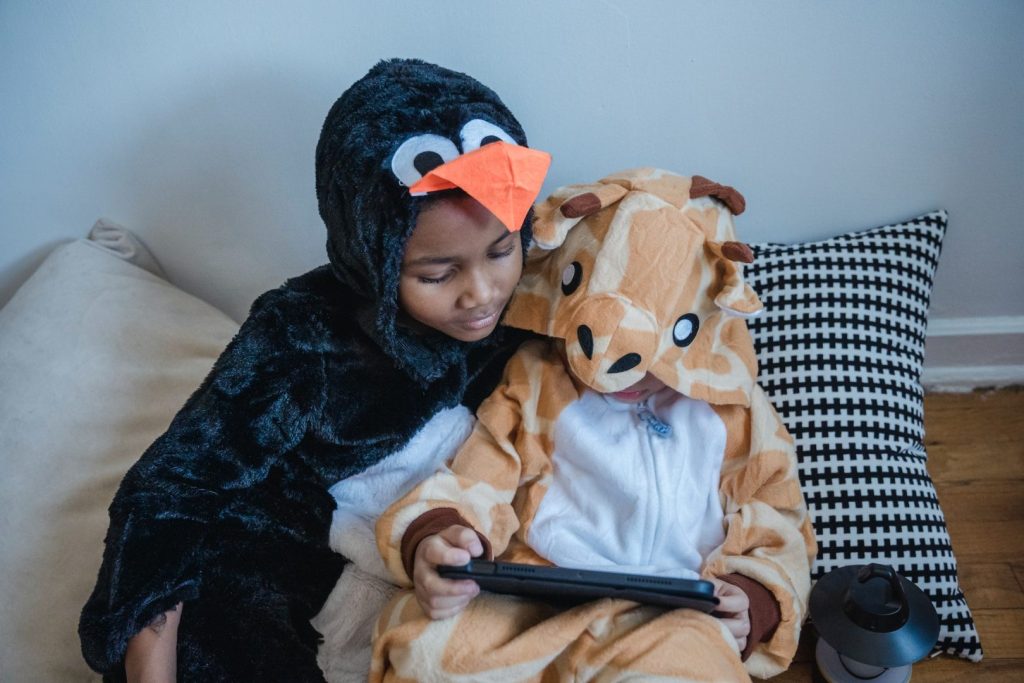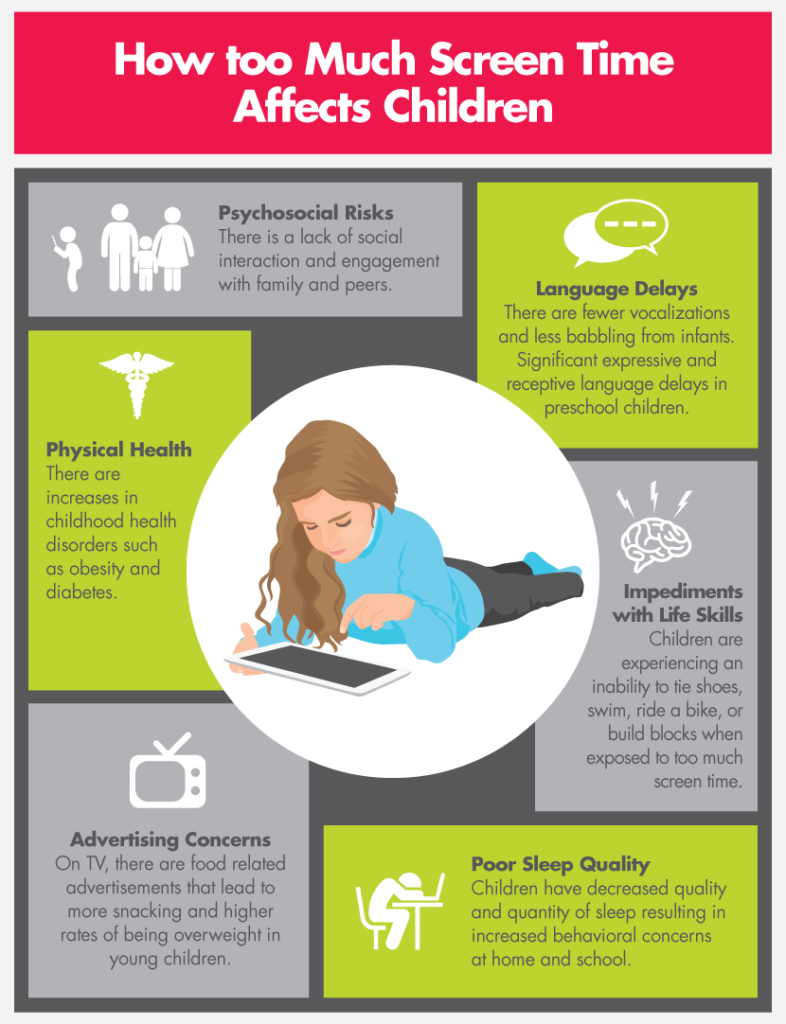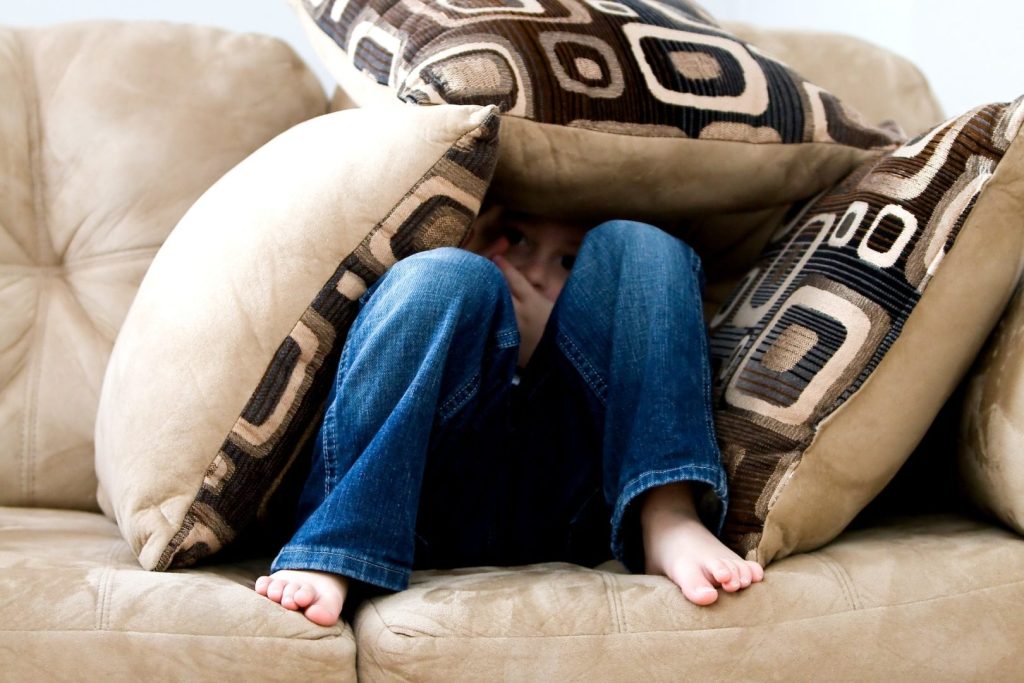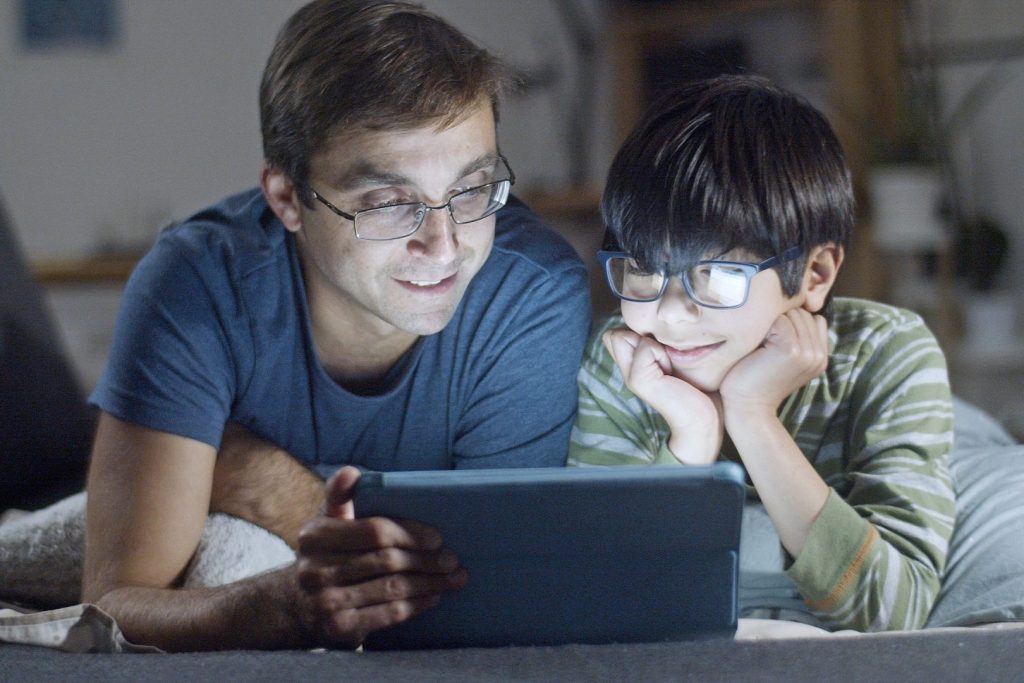People manifest their actions through feelings. Emotions are complex mental and body behavioral reactions on some exact subject or person.
Therefore people express happiness, joy, anger, and fear. Adults can control their emotions, but kids are innocent, and their emotions are pure expressions of the situation.
Children’s Exposure to Tech

As we all use tech devices in our daily activities, we can’t forget that overuse can cause damage. Our kids’ exposure to screens can affect their development and improvement.
The fact is that kids spend many hours in front of screens. They enjoy living in their colorful, beautiful virtual world. They are attached to tech devices and refuse to leave them.
Children react impulsively and nervously when parents try to reduce screen time. They can’t understand the negative impact of tech overuse on their development.
Studies show that nearly half of all students are addicted to tech. And other reports show that children spend between five and seven hours daily on their devices.
The Effects of Excessive Screen Time on Children’s Emotions

The effects of excessive screen time are related to the number of hours kids spend in front of screens. In that period of use, kids are totally under the control of tech devices. Their behavior and mental capacity change, and they create a different mindset.
In the following paragraphs, we’ll discuss the potential negative emotional impacts of too much screen time on kids.
Low Passion for Learning
Tech-addicted children develop disinterest and disrespect for school. They’re focused on screens and often don’t pay attention to school lessons.
Their brain stimulates happy emotions when they are in front of screens, but they express uneasiness in front of books. Children are not aware of the consequences of an unplanned future and the risks of missing out on knowledge.
Anger and Frustration
Kids can be very nervous and frustrated when they are not allowed to use tech. Screaming tantrums make it difficult for parents to calm their kids. So, parents can choose between two options:
- Give the kid the device which damages parents’ authority over their children ;
- Calm the kid with conversation and explain the point of limiting tech;
Depression

Kids can suffer from various mental problems that include depression when they are not allowed to use screens.
They isolate themselves in their rooms, don’t leave, are quiet, and don’t have the energy or interest in living. Parents are stressed when they face this situation and should consult a therapist.
Panic Attacks
Kids can suffer from fear and panic attacks as a result of thinking that they are losing something precious to them (in this case, the tech device). And it is difficult for the parents to solve this problem.
Addiction
Kids who spend much time in front of screens develop an addiction to their devices. They are attached to the screen as a newborn is to its mother.
Tech devices control kids’ brains and actions, and how can parents break this relationship and help their kids? It is hard, but with patient control and rules we can install tech-free habits in children.
Distancing From Family
Kids concentrated on tech usage develop distant family relationships, disrespect, and low confidence and trust in their parents. Their best friend is the screen.
Studies show that the percentage of children estranged from their parents is getting higher and higher.
Effects on Social Development
Kids attracted to and addicted to tech devices have low or absolutely no social skills. They don’t practice verbal interaction and communication with others, which leads to developing a personality that doesn’t show empathy or feelings.
They don’t accept family, friends, or belonging to a community. Choosing indoor life instead of outdoor can also lead to physical and mental health problems.
Parents Should Guide Screen Time for Their Kids
Prevention is the best method that parents can use to protect their kids from becoming emotively unstable as a result of tech over usage.
They need to set rules to guide their kids in tech usage. The American Academy of Pediatrics (AAP), recommends the following:
- Babies that are 18 months older or smaller are not allowed to use tech at all;
- Toddlers that are between 18 and 24 months can use tech only with parents and for educational purposes;
- Kids that are between 2 and 5 years can use one hour of tech and only for educational purposes;
- Kids over 5 use tech in school and at home for learning and no other tech activities;
- Pre-teens and teens are allowed to use the screen for educational and learning processes, and for the time left, parents should put limits;
Teaching Kids to Balance Screen Time

If kids accept balanced screen usage as a family rule for the well-being of everyone, they will succeed in developing mentally healthy people.
In the following paragraphs, we’ll go over ways of balancing screen time with other activities.
Split Tech Usage for Purpose and Entertainment
Kids are smart. If parents properly control their children and set rules, they can split tech usage between what’s useful and fun.
By constantly communicating with children and setting up parental control apps, parents can educate children on why it is important to use tech productively.
After School Activities
Let children choose tech-free activities and encourage them to lose energy in the sports field instead of their screens.
Their brain reduces dopamine (happy hormone) and stimulates them to continue with sports.
Family bonding
Screen time can be easily limited when family members are involved. You can engage children in family activities such as:
- Playing games indoors and outdoors;
- Conversations about the day;
- Reading books;
- Telling stories;
- Doing house chores;
- Helping the community;
Conclusion
As parents, we don’t want to see our kids become emotionally unstable. We don’t buy smartphones to destroy our kids’ life and future.
When we allow our kids to use tech, we should provide instructions on how to use it. Don’t forget this because your kids’ future is in your hands.
FAQs
What are the 5 signs of emotional suffering?
- Low or no energy
- Difficulty learning
- Isolating from family and friends
- Fears and panic attacks
- Depression and anxiety
Can too much screen time make kids depressed?
Too much screen time can make kids depressed, and several studies back this up. The tech world is often dangerous and the huge amount of information can hit children hard.
How does too much screen time affect children’s mental health?
Digital content often gets repetitive. Scrolling through the same posts for hours or playing the same game isn’t beneficial for children. And also the risks and traumas online bullies and harassers bring are big.







